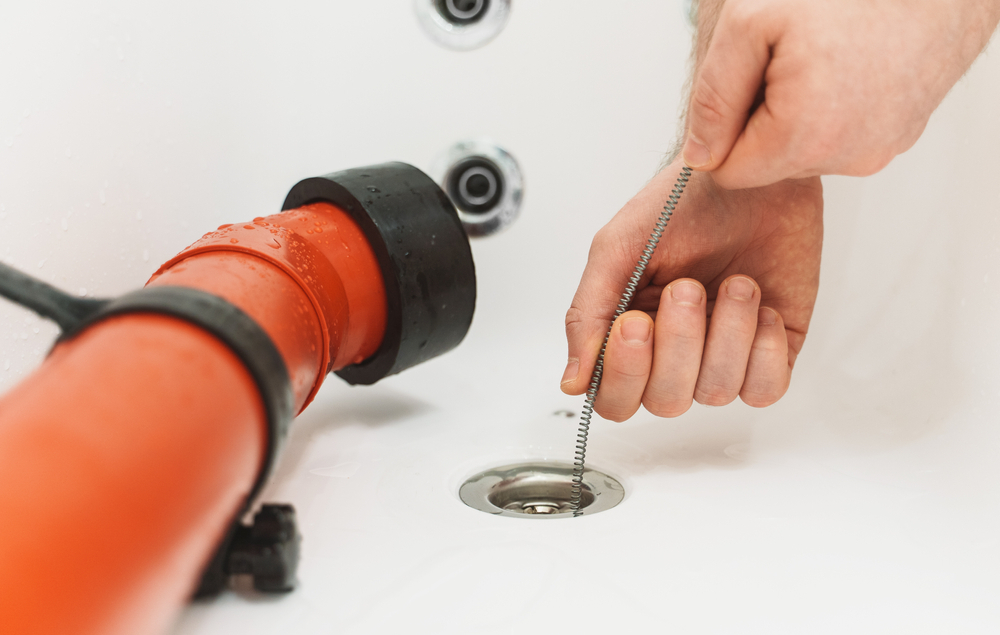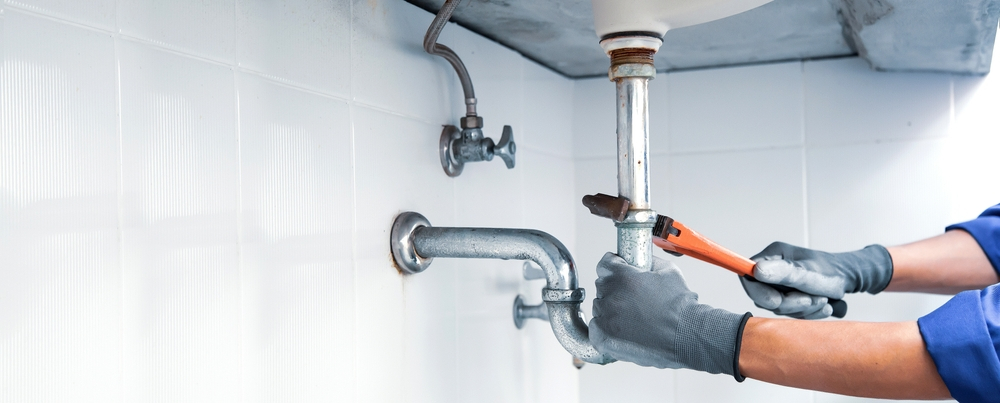Tips for Keeping Drains Clear During Seasonal Changes
Seasonal changes can significantly impact your plumbing system, particularly your drains. Each season brings unique challenges that can cause blockages, backups, and damage if not properly managed. To maintain clear drains throughout the year, it’s crucial to understand these challenges and adopt preventive measures. This guide provides detailed tips for keeping your drains clean during seasonal changes, ensuring smooth water flow and preventing costly repairs.
Understanding Seasonal Challenges
Winter
In winter, cold temperatures can cause water in your pipes to freeze. This leads to blockages and potentially burst pipes. Additionally, increased use of heating systems can dry out the air, causing pipes to contract and become more prone to leaks.
Preventive Measures:
- Insulate Pipes: Insulate exposed pipes to keep them from freezing. Use foam insulation or heat tape for maximum protection.
- Keep Faucets Dripping: Allow a slow trickle of water from faucets during extreme cold. This keeps water moving and reduces the risk of freezing.
- Seal Cracks: Seal any cracks or openings in your home’s foundation. This prevents cold air from reaching your pipes.
- Maintain Indoor Temperature: Keep your home’s temperature consistent, especially in areas where pipes are located.

Spring
Spring brings melting snow and increased rainfall. This can overwhelm drainage systems, leading to backups and floods. Additionally, debris from blooming plants can clog outdoor drains and gutters.
Preventive Measures:
- Clean Gutters and Downspouts: Regularly remove leaves, twigs, and other debris from gutters and downspouts. This ensures proper water flow.
- Check Sump Pumps: Ensure your sump pump is in good working condition. Test it by pouring water into the pit and checking if it activates.
- Inspect Outdoor Drains: Clear any blockages from outdoor drains. Use a garden hose to flush out any debris.
- Landscaping Maintenance: Trim back plants and trees near your home. This prevents roots from invading your drainage system.
Summer
In summer, increased water usage from activities like watering lawns and filling pools can strain your plumbing system. Heavy storms can also cause sudden influxes of water, leading to blockages.
Preventive Measures:
- Monitor Water Usage: Be mindful of your water usage. Avoid running multiple water-intensive appliances simultaneously.
- Install Drain Guards: Place guards over outdoor drains to catch leaves, dirt, and debris. This prevents clogs.
- Check for Leaks: Regularly inspect your plumbing for leaks. Repair any issues promptly to avoid water wastage.
- Maintain Sewage Systems: If you have a septic tank, schedule regular maintenance. This prevents backups and overflows.
Fall
Fall is notorious for fallen leaves clogging gutters and outdoor drains. Cooler temperatures can also cause pipes to contract, increasing the risk of leaks.
Preventive Measures:
- Rake Leaves Regularly: Keep your yard free of fallen leaves. Dispose of them properly to prevent them from entering your drainage system.
- Clean Gutters: Frequently clean your gutters during the fall. Use a hose to ensure water flows freely.
- Inspect Pipe Insulation: Check the insulation on your pipes. Replace any damaged insulation to prepare for the upcoming winter.
- Service Heating Systems: Ensure your heating system is in good working order. This helps maintain a consistent indoor temperature and protects your pipes.
General Tips for Year-Round Drain Maintenance
Regular Cleaning
Regularly clean your drains to prevent buildup and blockages. Use a mixture of baking soda and vinegar for a natural, effective cleaning solution. Pour half a cup of baking soda down the drain, followed by half a cup of vinegar. Let it sit for 15 minutes, then flush with hot water. This method helps break down grease, soap scum, and other debris.
Avoiding Harsh Chemicals
Avoid using harsh chemical drain cleaners. They can damage your pipes and harm the environment. Instead, opt for natural cleaning solutions or mechanical methods like plungers and drain snakes.
Proper Disposal of Waste
Be mindful of what you put down your drains. Avoid disposing of grease, coffee grounds, and fibrous foods like celery. Use sink strainers to catch food particles and regularly empty them into the trash.
Regular Inspections
Schedule regular inspections of your plumbing system. A professional plumber can identify potential issues before they become major problems. Annual inspections are recommended to ensure your system is in good condition.
Install a Water Softener
Hard water can cause mineral buildup in your pipes, leading to blockages. Installing a water softener reduces mineral content, prolonging the life of your plumbing system and maintaining clear drains.
Monitor Water Pressure
High water pressure can strain your plumbing system, leading to leaks and damage. Install a pressure regulator to maintain safe water pressure levels. Check the pressure regularly to ensure it stays within the recommended range.

Handling Emergencies
Recognizing Signs of a Blockage
Recognize the early signs of a blockage to address issues promptly. Slow draining water, gurgling sounds, and foul odors are common indicators. If you notice these signs, take action immediately to prevent further damage.
Using a Plunger
A plunger is a simple, effective tool for clearing minor blockages. Ensure you have a good seal around the drain and use firm, consistent pressure. Repeat the process several times to dislodge the blockage.
Using a Drain Snake
A drain snake is useful for more stubborn blockages. Insert the snake into the drain and twist it to catch the debris. Pull it out carefully to avoid damaging the pipes.
Calling a Professional
For severe blockages or recurring issues, call a professional plumber. They have the expertise and equipment to handle complex problems. Attempting to fix major issues yourself can cause more damage and lead to costly repairs.
Preventing Outdoor Drain Problems
Maintaining Proper Grading
Ensure your yard has proper grading to direct water away from your home. Improper grading can lead to water pooling around your foundation, causing leaks and damage. Consult a landscaping professional if needed to achieve the correct slope.
Installing French Drains
French drains are an effective solution for managing excess water in your yard. They consist of a trench filled with gravel and a perforated pipe that redirects water away from your property. Install French drains in areas prone to water accumulation to prevent drainage issues.
Regular Gutter Maintenance
Regularly maintain your gutters to ensure they function properly. Clean them at least twice a year and inspect for damage. Repair or replace any sections that are leaking or sagging.
Protecting Window Wells
Install covers over window wells to prevent debris and water from entering. Clear any accumulated leaves or dirt regularly to ensure proper drainage.
The Role of Landscaping
Planting Trees and Shrubs Wisely
Plant trees and shrubs at a safe distance from your home and drainage system. Roots can grow into pipes, causing blockages and damage. Choose plants with less aggressive root systems and consider their mature size when planting.
Using Mulch Appropriately
Apply mulch around your plants to retain moisture and prevent soil erosion. However, avoid piling mulch directly against your home’s foundation. This can trap moisture and lead to water infiltration issues.
Maintaining Lawn Health
A healthy lawn can absorb excess water and reduce runoff. Aerate your lawn regularly to improve water absorption and prevent soil compaction. Overseed and fertilize as needed to maintain lush, healthy grass.
Building Retaining Walls
Build retaining walls in areas with steep slopes to manage water flow. Retaining walls help prevent soil erosion and direct water away from your home. Ensure they are constructed properly to withstand heavy rains and water pressure.
Technological Solutions
Smart Water Sensors
Install smart water sensors to monitor your plumbing system in real-time. These devices can detect leaks, high humidity, and unusual water flow. They send alerts to your smartphone, allowing you to address issues promptly.
Automatic Shut-Off Valves
Automatic shut-off valves can prevent extensive water damage. These valves automatically shut off the water supply when they detect a leak. Install them in areas prone to leaks, such as basements and near water heaters.
High-Efficiency Appliances
Upgrade to high-efficiency appliances to reduce water usage and strain on your plumbing system. Look for Energy Star-rated dishwashers, washing machines, and toilets. These appliances use less water and operate more efficiently.
Video Inspection Technology
Professional plumbers can use video inspection technology to diagnose and locate blockages. This method involves inserting a small camera into your pipes, providing a clear view of the problem. Video inspections are non-invasive and highly accurate, allowing for precise repairs.
Conclusion
Keeping your drains clear during seasonal changes requires proactive maintenance and awareness of potential challenges. By understanding the unique issues each season presents, you can adopt effective preventive measures. Regular cleaning, proper waste disposal, and timely inspections are key to maintaining a healthy plumbing system. Additionally, leveraging technology and professional services can provide added protection and peace of mind. By following these tips, you can ensure your drains remain clear year-round, preventing costly repairs and ensuring the smooth operation of your home’s plumbing system.
Plumbing Services CA
https://maps.app.goo.gl/31Yt4rhDrainzNJ4A
(279) 203-0765
https://plumbingservicesca.com/
